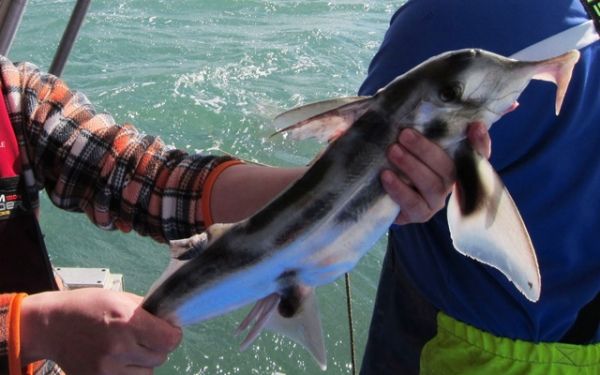The mineralocortoid receptor (MR) regulates water and sodium transport throughout cells and tissues, which is critical for controlling blood pressure and so, not surprisingly, the MR is common to all vertebrate animals. Aldosterone, which is a physiological steroid for land vertebrate MRs, evolved in lungfish (forerunners of land vertebrates), suggesting that the evolution of aldosterone was important in the conquest of land by preventing dehydration in animals living out of water.
And yet, aldosterone is absent in sharks and ray-finned fish, prompting the question of which steroids activate the MR in them, and the roles played by these steroids in humans.
In an unusual study, an international team of scientists from Japan, Singapore and the United States, led by Michael E. Baker, PhD, research professor at University of California San Diego School of Medicine, report that compared to humans, a different set of steroid hormones activate MR in elephant sharks, a species of cartilaginous fish that represents the oldest surviving group of jawed vertebrates.
Read more at University of California San Diego
Image: An elephant shark, characterized by its distinctive snout. Photo credit: Susumu Hyodo, University of Tokyo


